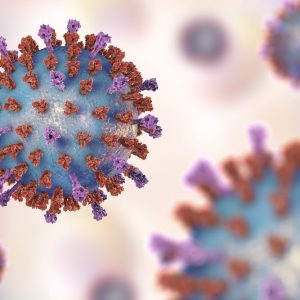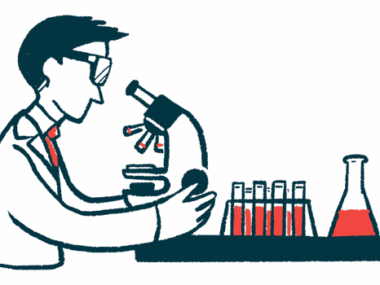COVID-19 Lockdown Led to Weight Loss in PWS Adults, French Study Says
Written by |

Lockdown during the COVID‐19 pandemic led to weight reduction among half of adults with Prader-Willy syndrome (PWS) in a French study, data show.
Weight loss typically was seen in patients with higher physical activity and better eating habits. Moreover, these findings likely reflect changes in lifestyle behaviors and more supervision by caregivers during the lockdown, the researchers said.
The study, “Effects of the COVID-19 pandemic and lockdown on the mental and physical health of adults with Prader-Willi syndrome,” was published in the Orphanet Journal of Rare Diseases.
PWS is caused by the loss of or defects in paternal genes in chromosome 15 that control metabolism, appetite, growth, intellectual skills, and social behavior. The most common cause of the disease is a deletion in chromosome 15. One other cause is the inheritance of two copies of chromosome 15 from the mother rather than one from the mother and another from the father — in such cases, the condition is dubbed maternal uniparental disomy, or UPD.
Irrespective of the genetic cause, patients experience difficulties adapting to changes, uncontrolled mood, insatiable hunger — known clinically as hyperphagia — and food impulsivity. Obesity is frequently associated with PWS.
The COVID-19 pandemic and ensuing lockdowns took a heavy toll on people with rare disorders and their families, including adults and children with PWS. For this particular patient population, the lockdown sometimes meant reduced physical activity and poorer food control, which had the potential to worsen the condition.
To investigate the effects of COVID‐19 lockdowns on weight, and on physical and mental health in PWS patients, a group of researchers in France conducted an interview-based study.
In total, 85 people with PWS — 40 men and 45 women — with a mean age of 28.05 were recruited at the Reference Center for Rare Diseases at the Pitié-Salpêtrière Hospital, in France. A physician who specializes in the care of PWS patients conducted the interviews by telephone at the height of the lockdown in France. The interviews took place from April to May 2020.
The group’s mean body mass index (a measure of body fat) was 36.76 kilograms per square meter (kg/m2), with 87.1% being considered overweight or obese. A fourth of the patients (25%) had diabetes, 11.8% had high blood pressure (hypertension), 20.2% had abnormal levels of cholesterol and other fats — a condition called dyslipidemia — and 8.9% were active smokers.
In more than half (55%), PWS was caused by a partial deletion in chromosome 15, while in the other 45% the disease was due to UPD.
The majority of patients (70%) were confined at their family’s home in the Paris region. A total of 29.4% were in lockdown at their social healthcare institution.
Around half of the patients (50.6%) underwent a total lockdown, and 1.2% disregarded the lockdown completely. The remaining 48.2% followed a partial lockdown during which they stayed outside the house for a maximum of one hour per day.
Overall, 73% reported a complete halt of their daily activities during the lockdown, while 67.1% saw their daily physical activity reduced. Despite this, the feeding behavior was maintained by 43.9% of the patients, and in 35.4% of cases, it improved.
Almost half of the patients (49%) were reported to have lost weight, while 27.5% gained weight, and 23.7% remained stable. The mean weight loss was 0.96 kg (about 2.12 pounds).
The researchers observed that patients who lost weight had a lower BMI score prior to the lockdown compared with those who gained weight, Specifically, the numbers were 34.60 versus 40.45 kg/m2. No differences were observed when taking into account age, gender, and the genetic cause of PWS.
Patients with higher rates of physical activity were significantly more likely to experience a weight loss than those who were less active — 25.6% vs. 4.5%. The same was seen for individualss with better eating habits (51.3% vs. 13.6%).
Three patients (3.5%) experienced symptoms of non-severe COVID-19, and were later confirmed positive for the virus. Two had diabetes. The ages of the three ranged from 18 to 25, and they were characterized as having normal to obese weight, with BMI ranging from 21.2 to 48.8 kg/m2.
Regression in behavior disorders occurred with 11 patients (12.9%) during lockdown. There were 10 with frequent outbursts and two which required medical follow-up.
Caregivers reported that their main difficulties were anxiety exacerbations and dealing with the ban on going outside.
Overall, “the lockdown had a positive impact for most French adults with PWS. Nearly 50% lost weight, in parallel with improved lifestyle behaviors (eating habits, [physical activity]),” the researchers wrote.
“Living conditions during the lockdown likely led to robust caregiver supervision, as parents or family were generally at home,” the team suggested.
“In many homes, [physical activity] programs were set up during the lockdown, although [physical activity] PA levels were lower than usual.





